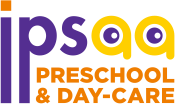From the moment children are born, they are naturally drawn to the magic of music and movement. Music and movement are integral components of early childhood education that offer numerous benefits to young children’s physical, cognitive, social, and emotional development. One setting where these benefits are often nurtured is in a playschool environment. Playschools provide a structured and supportive space where young children can engage in music and movement activities that enhance their overall development in a fun and playful manner. In this blog, we will explore the benefits of music and movement in early childhood education and how playschools can play a crucial role in facilitating these experiences.
Physical Development
Music and movement activities promote physical development in young children. Actions like dancing, jumping, and clapping in response to music help develop gross motor skills, coordination, and balance. Activities that involve fingerplay, such as playing musical instruments, aid in the development of fine motor skills and hand-eye coordination. Regular engagement in music and movement activities can also help improve muscle tone and strength, leading to overall physical fitness.
Play schools provide ample opportunities for young children to engage in music and movement activities that promote physical development. For instance, playschools often incorporate music and dance sessions as part of their daily routine, where children can move freely, dance, and play musical instruments. Outdoor playtime and games also allow children to engage in various physical activities, further enhancing their physical development.
Cognitive Development
Music and movement activities have a significant impact on cognitive development in early childhood. Research suggests that music stimulates different areas of the brain, including those associated with memory, attention, and problem-solving skills. Movement activities, such as dancing or playing musical instruments, engage multiple senses, promoting sensory integration and cognitive development. Exposure to different types of music, rhythms, and beats also helps children develop auditory discrimination skills.
In playschools, children are often exposed to a wide range of music genres, styles, and instruments, which can enhance their cognitive development. Playschools may incorporate activities such as singing, dancing, and playing musical instruments into their curriculum to promote cognitive development. Additionally, music and movement activities are often integrated with other learning areas, such as math, language, and science, through songs, rhymes, and creative movements, providing a holistic approach to cognitive development.
Social Development
Music and movement activities foster social development in young children by promoting communication, cooperation, and social skills. Singing, dancing, and playing musical instruments in a group setting encourage children to listen, follow instructions, take turns, and share more. Music and movement also provide a common ground for children to connect with their peers, build relationships, and develop a sense of belonging.
Playschools offer a conducive environment for young children to engage in music and movement activities that promote social development. Group activities such as singing and dancing in a circle, playing musical games, and participating in music and movement projects provide opportunities for children to develop social skills and build relationships with their peers. Moreover, playschools often emphasise the importance of positive social interactions and encourage children to respect and appreciate diversity, promoting a sense of community and inclusivity.
Emotional Development
Music and movement activities can also have a significant impact on emotional development in early childhood. Music has the power to evoke emotions, and is engaging in movement activities. It allows children to express and regulate their emotions in a healthy and constructive way. Music and movement can help children develop emotional awareness, self-regulation skills, and empathy towards others. It can also serve as a form of creative expression, allowing children to express their thoughts, feelings, and ideas in a nonverbal manner.
Playschools recognize the importance of emotional development in young children and often incorporate music and movement activities as a means to promote emotional development. Playschools may provide opportunities for children to engage in activities such as music and movement therapy, where children can express themselves through music, dance, and other forms of creative movement. Playschools also create a nurturing and supportive environment where children feel safe to express their emotions freely, and where their emotional well-being is prioritised.
In addition to the benefits mentioned above, music and movement activities in playschools can also promote creativity, imagination, and self-expression in young children. Through improvisation, creating their own movements or songs, and engaging in imaginative play, children can develop their creativity and critical thinking skills. Playschools often provide a stimulating environment that encourages children to explore and experiment with different forms of music and movement, sparking their imagination and fostering their creative abilities.
Playschools Incorporating Music and Movement
Playschools play a pivotal role in incorporating music and movement in early childhood education. Here are some ways in which they do so:
- Singing and Dancing: Playschools introduce children to age-appropriate songs with catchy melodies, rhythms, and lyrics. They encourage children to sing along, dance, and move their bodies to the rhythm of the music, fostering a love for music and promoting gross motor skills.
- Musical Instruments: Playschools provide a variety of musical instruments for children to explore and play with. This allows them to experiment with different sounds and rhythms, promoting fine motor skills and creativity as they create their own music.
- Movement Activities: Playschools incorporate movement activities into daily routines, such as stretching, dancing, or playing games that involve physical movement. These activities can be adapted to the abilities and interests of each child, promoting physical development and coordination.
- Music and Movement Storytime: Playschools use music and movement to enhance storytime activities. They choose books with musical themes or incorporate songs and dances related to the story, making storytime more interactive and engaging while promoting language development and imagination.
- Cultural Music Exploration: Playschools introduce children to music and dances from different cultures around the world, promoting diversity and cultural awareness. Children learn about different traditions, listen to music from different countries, and even learn traditional dances, fostering a global perspective.
- Collaborative Music and Movement Projects: Playschools encourage children to work together to create their own music and movement projects. This could involve composing their own songs, creating their own dance routines, or putting together a mini-musical performance. These collaborative projects foster teamwork, creativity, and self-expression.
Conclusion
Incorporating music and movement into early childhood education provides numerous benefits for children’s cognitive, physical, social, and emotional development. Music and movement activities stimulate brain development, support physical skills, encourage emotional expression, foster social skills, enhance language and communication skills, promote cultural awareness, and boost creativity and imagination. Playschools integrate music and movement into daily routines and activities to create a fun and engaging learning environment for young children. So let’s embrace the power of music and movement in early childhood education and watch our little ones thrive and grow!

